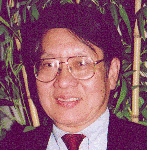The chess game being played out in the South China Sea by China, Vietnam, the United States and other affected countries has wide implications as China’s needs, power and economy expands. In today’s closely connected world the challenge is to find a path that will not lead to conflict. So far the countries involved have been unable to harness China’s need for expansion, and are headed for the shoals of an armed conflict that could reverberate around the world. The goal of the September 25th forum, Dangerous Waters, is to commence an ongoing discussion focused on this issue which will present various views and analyses, and, hopefully, practical paths toward accommodation and compromise which will avoid conflict and make the best use of limited resources for all. If this can be accomplished in the South China Sea, there is hope that other similar conflicts can be avoided as our world gets smaller and smaller and strains on its resources become greater.
The Dangerous Waters Forum was held Thursday, September 25th, 2014, at the University of California, Berkeley.
Participants
Eric Crystal
Moderator
Eric Crystal is an anthropologist who has been involved in research, teaching, and consulting relating to Southeast Asia for over thirty years. An accomplished photographer, he has been committed to documenting both traditional Southeast Asian culture and the processes of social and economic change in the region. Dr. Crystal initiated and directed the first U.C. Education Abroad Program in Hanoi, Vietnam in l999 and in recent years has worked with the national Museum of Ethnology in Hanoi. He retired from his position as Vice-Chair of the U.C. Berkeley Center for Southeast Asia Studies in 2000 to focus on research and part time teaching in the Group for Asian Studies at CAL.
Roger Cavazos
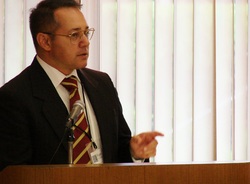
Roger Cavazos is a Nautilus Institute Associate who retired from the U.S. Army after assignments in the policy and intelligence communities. He retired from the United States Army after 22 years of service at the tactical, operational and strategic levels of war. His assignments in the then Federal Republic of Germany, Republic of Korea and China provided insight into finding common ground across various cultures and outlooks. The last 12 years of his career were mainly focused on U.S. policy toward China and Taiwan. He lived and worked in Northeast Asia (China and Korea) and has traveled extensively throughout Asia in his military life. He continues to use his extensive contacts and Chinese language skills to seek innovative solutions to complex problems. He also provides consulting services to help technology based companies reach across the Pacific. His main areas of focus now are conventional deterrence, and information warfare. He can be reached at
rcavazos@nautilus.org
Mark Valencia
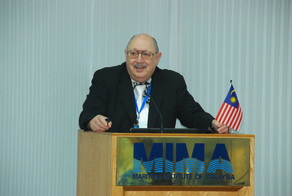 “THE SOUTH CHINA SEA : SEPARATING FACT FROM FANCY”
“THE SOUTH CHINA SEA : SEPARATING FACT FROM FANCY”
Dr. Mark J. Valencia is an internationally known maritime policy analyst, political commentator and consultant focused on Asia. He was a Senior Fellow with the East-West Center for 26 years where he originated, developed and managed international, interdisciplinary projects on maritime policy and international relations in Asia. He has a M.A. in Marine Affairs from the University of Rhode Island and a Ph.D in Oceanography from the University of Hawaii. Before joining the East-West Center, Dr. Valencia was a Lecturer at the Universiti Sains Malaysia and a Technical Expert with the UNDP Regional Project on Offshore Prospecting based in Bangkok.
Tạ Văn Tài
Since arrival in the United States as refugee in 1975, Dr. Tạ has been working at Harvard Law School and also practicing law in Massachusetts.He holds law degrees from the University of Saigon and Harvard Law School, as well as an M.A. and Ph.D. in government and foreign affairs from the University of Virginia. From 1965 to 1975, he was attorney and professor of law and political science at universities in South Vietnam. In 1975, as North Vietnamese troops advanced towards Saigon, he fled with his wife and small children to the United States.
His publications include many books on law, for example: ”The Code of the Le Dynasty”(co-author), Ohio University Press , 1987: “The Vietnamese Tradition of Human Rights” published at University of California-Berkeley,1988; “Immigrants in American Courts (co-author) published at University of Washington-Seattle, 1999; and many articles in law reviews and other scholarly journals, including “The right of asylum of Indochinese Refugees” in the journal Asian Thought and Society (no. 21/1982), and some short articles in UNHCR Refugee Abstracts, June 1987 and December 1988.
Darren Zook
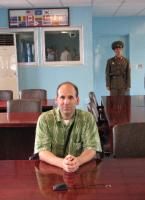
Darren Zook teaches in International and Area Studies and Political Science at UC Berkeley. His areas of interests include international law, human rights, security studies, corruption, comparative Asian politics, and the politics of music. His research interests have taken him to various parts of Asia, including India, Sri Lanka, Indonesia, Cambodia, Thailand, Singapore, Malaysia, Burma, Japan, China, Mongolia, South Korea, and North Korea.
Listen to Professor Zook speak about the SCS conflict on KPFA’s “Up Front” on 9/25. Professor Zook’s portion begins at 8 minutes, 35 seconds.
Tuong Vu
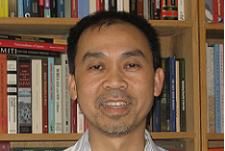
“THE RESURGENCE OF NATIONALISM IN EAST ASIA AND THE PROSPECTS OF WAR “
Tuong Vu (PhD, Berkeley) is an associate professor of Political Science at the University of Oregon, and has held visiting fellowships at the National University of Singapore and Princeton University. His book, Paths to Development in Asia: South Korea, Vietnam, China, and Indonesia (Cambridge, 2010), received a Bernard Schwartz Award Honorable Mention. He is also co-editor of Dynamics of the Cold War in Asia: Ideology, Identity, and Culture (Palgrave, 2009) and Southeast Asia in Political Science: Theory, Region, and Qualitative Analysis (Stanford, 2008). His articles have appeared in many scholarly journals, including World Politics, Journal of Southeast Asian Studies, Journal of Vietnamese Studies, Studies in Comparative International Development, Communist and Post-Communist Studies, South East Asia Research, and Theory and Society. His recently completed book manuscript on the Vietnamese revolution as a case of radical movements in international politics is currently under review.
Nguyen Thi Lan-Anh
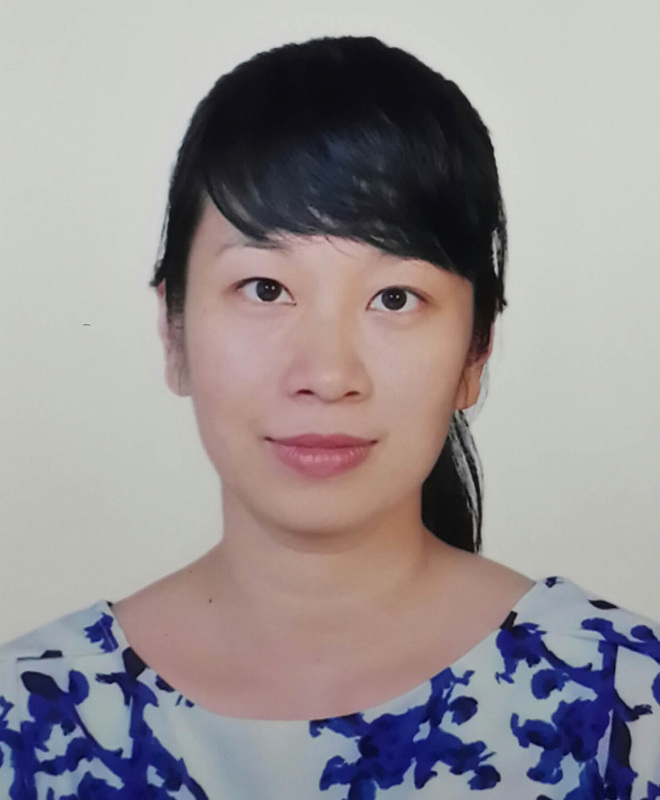
“THE CHALLENGE OF MAINTAINING THE STATUS QUO IN THE SOUTH CHINA SEA“
Nguyen Thi Lan-Anh is Vice Dean of the International Law Faculty of the Diplomatic Academy of Vietnam. Dr. Lan-Anh received her Ph.D. in International Law from Bristol University in the United Kingdom. Her research interests are in ocean law and policy, maritime security, and the South China Sea issues. She was a research fellow at the Center for International Law, National University of Singapore and the Japan Institute for International Affairs. She is the presenter in a series of international workshops on South China Sea.
Bill Hayton
Bill Hayton is the author of two books on Southeast Asia, including the recently published
South China Sea: the struggle for power in Asia (reviewed
here by The Economist) by Yale University Press in mid-2014. It is the first book to explore and explain the disputes in this crucial area of the world to a general audience. His previous book
Vietnam: rising dragon was published by Yale in 2010 to good reviews. He has worked for the BBC since 1998, including a posting as the BBC reporter in Vietnam in 2006-7. He currently works for BBC World TV in London. He has written about Southeast Asia for many publications including The Times, Financial Times, Foreign Policy, National Interest and The Diplomat. Throughout 2013 he was embedded with the state broadcaster in Myanmar attempting to further the cause of media reform – with predictably modest success!
Please send us your ideas and feedback as we hope to continue this discussion.

 “THE SOUTH CHINA SEA : SEPARATING FACT FROM FANCY”
“THE SOUTH CHINA SEA : SEPARATING FACT FROM FANCY” 



